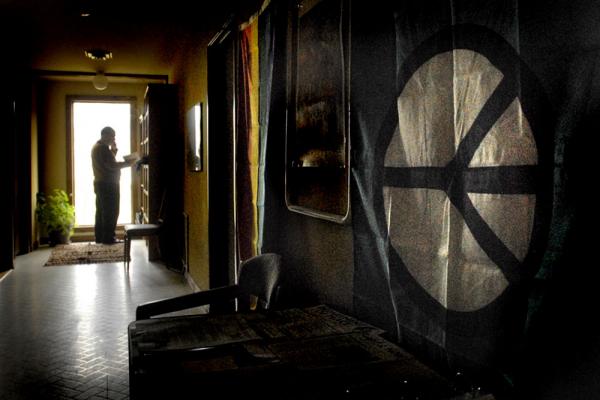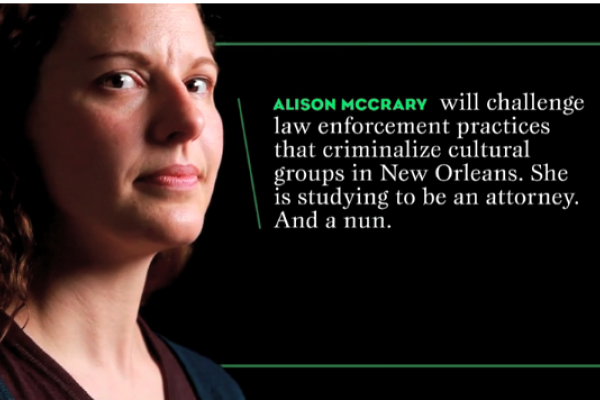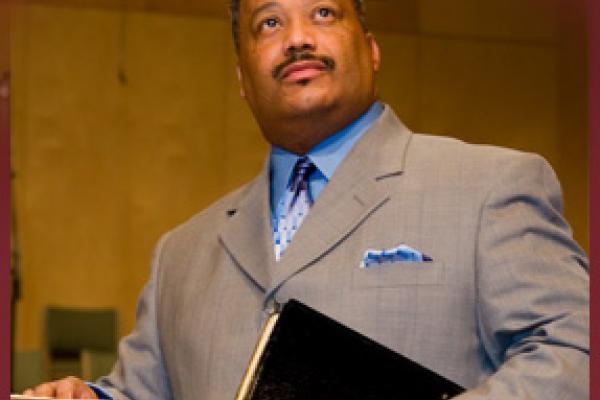Atlanta-area megachurch pastor Eddie Long has had his share of headlines, many of them not good. Now he's making news — and raising eyebrows — again with a "kingship" ceremony that can only be described as bizarre.
Jewish groups say the ceremony -- in which Long was shrouded by a Torah scroll (allegedly saved from Auschwitz) and then paraded around on a chair — was the height of disrespect. And it's not just Jews who were offended.
While the mid-Atlantic basks in higher than normal temperatures, it isn’t like that everywhere. Two stories from The New York Times on the struggle for warmth.
In Maine, elderly and often disabled folks who can’t afford heating oil struggle for warmth. The energy assistance program of past years was slashed as part of federal spending cuts, resulting in 65,000 households in this state alone receiving less help, while the cost of oil has risen more than 40 cents a gallon. The basic need for heat becomes a full-time struggle.
Editor's Note: At the beginning of February, the United Nation celebrates World Interfaith Harmony Week. To mark the occasion the Tony Blair Faith Foundation asked people to share their stories of finding friendship and connection with someone of a different faith tradition. This is my story.
When it came time to read from the Torah — handwritten scrolls containing the first five books of the Hebrew Scriptures that are kept in a special ark in every synagogue — something happened I’d never seen or experienced before. The Torah scrolls, which are kept in a blue velvet cover with gold embroidery, were taken down and passed to the congregation. I’d seen men in synagogue hold the scrolls, but I’d never seen them passed this way, from person to person, like the collection basket or the little trays of wine or bread in some of the churches I’d attended over the years.
I’m not Jewish, and in that little gathering of a dozen or so people, I think everyone there knew it. Still, when the scrolls got to me, the woman next to me, without a moment’s hesitation, placed them gently in my arms, like a newborn baby.
I’ve yet to conjure up the words to describe how that moment of inclusion felt. Sacred, yes. Grace-filled, absolutely. But also ancient — tying me to a whole history of a people whom I’d never before thought of as “mine.”
But they are. The Sechers are. The other people at the Bozeman synagogue were. The strangers at the supermarket where we bought matzo and wine were. The people who are reading these words are.
More than 30 Muslim and legal advocacy groups are urging New York Attorney General Eric T. Schneiderman to investigate the New York City Police Department after the second scandal in as many weeks involving Muslim Americans.
On Thursday (Feb. 2), The Associated Press reported that it had obtained a secret 2006 NYPD report, "U.S.-Iran Conflict: The Threat to New York City," which recommended that officers "expand and focus intelligence" at Shiite mosques.
VATICAN CITY — Ten years after the clergy sexual abuse scandal erupted in the United States, Catholic bishops from all over the world will meet next week at a Vatican summit aimed at preventing abuse and protecting children.
The conference, "Towards Healing and Renewal," will be held on Feb. 6-9 and is organized by the Jesuit-run Gregorian University in Rome.
The Vatican's top spokesman, the Rev. Federico Lombardi, told reporters on Friday (Feb. 3) that the summit enjoys the "full support and participation" of the Vatican's highest offices, but Pope Benedict XVI is not expected to attend.
Monsignor Charles Scicluna, the Vatican's chief abuse prosecutor, said the protection of children must become "a permanent principle and concern" in every decision of the church.
"There cannot be a distinction between the good of the church and the protection of youth," he said Friday.
Alison McCrary starts her mornings with prayer and meditation.
Sometimes she writes in her journal, other times she draws geometric mandalas. It's a way of silencing her mind.
She thinks about what grace she wants to ask for that day. Patience? Gratitude? Understanding?
"Humility is a big one," she says. "I ask, 'How can I increase God and decrease me?'"
McCrary graduated from law school in May and is in formation to become a nun in the Congregation of St. Joseph. She lives with a group of sisters in a house, and every night they sit down to eat together and share after-dinner prayers.
McCrary tries to strike a balance between prayer and ministry. The young lawyer, who turns 30 in February, spends her days as an advocate and organizer working with a grassroots group, Safe Streets/Strong Communities.
"People are always asking me, 'Why don't you get burned out?' But I feel like the more you give, the more you get back," she says.
Often, her ministry takes her to the streets of the city, monitoring second-line parades for any police misconduct, or sitting in a bar talking to Mardi Gras groups about noise ordinances or curfews that threaten native traditions.
After months of urging from other Baptists around the country, the Rev. Fred Luter told his African-American congregation that he will seek to become the first black man to lead the predominantly white Southern Baptist Convention.
Several Baptist leaders said Luter becomes the prohibitive favorite for the post, to be filled in a potentially historic election at the Southern Baptists' annual meeting in New Orleans in June.
SBC Today, a Baptist-focused news website, carried the announcement on earlier this week. Youth pastor Fred "Chip" Luter III separately confirmed Luter's announcement to his church last Sunday.
Luter appears to be the first candidate to declare for the post, which will become vacant this summer when the Rev. Bryant Wright of Marietta, Ga., finishes his second one-year term.
Many began openly promoting Luter for the top job last summer, moments after he was elected the convention's first African-American first vice president.
“The poor will always be with you,” Jesus once said, and for centuries his followers have struggled to understand what he meant.
Or maybe not.
“The poor will always be with you” — especially if you’re not poor — seems straightforward enough: Look around, people ! The poor (and their problems) are very much with us!
Viewed through this kind of realpolitik lens, this verse (and the Bible generally) pose no real interpretive challenges to our reading or our living. The world, regrettably, is simply thus. The poor, alas, will always be with us.
Super Bowl inforgraph, and a collection of notable commercials from years past. Take a look at radio Tanzania, and see a baby with some serious ping pong potential. And finally, take a look at some good music that released this week.
Since his poetry went viral in the YouTube sensation “Why I Hate Religion, But Love Jesus," Jefferson Bethke has been put at the center of sparked intense debate both within and outside the Church. His subsequent change of heart (after discussions with a number of the theologians who critiqued his interpretation of Jesus’ view of religion), is symptomatic of a deeper issue for this generation’s protestors and activists, David Brooks writes in the New York Times:
This seems to be a moment when many people — in religion, economics and politics — are disgusted by current institutions, but then they are vague about what sorts of institutions should replace them. This seems to be a moment of fervent protest movements that are ultimately vague and ineffectual.


